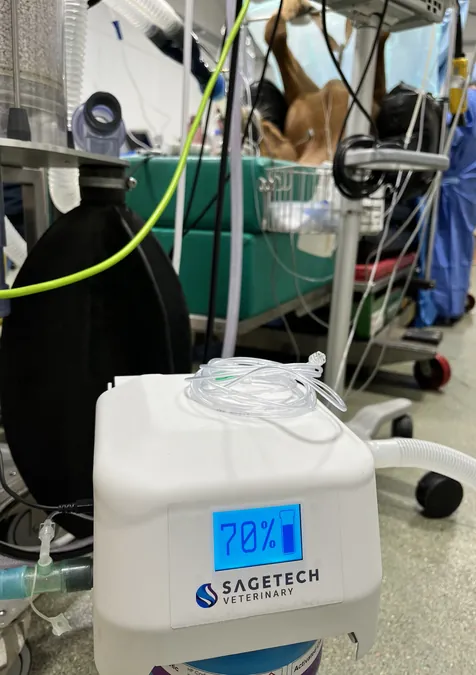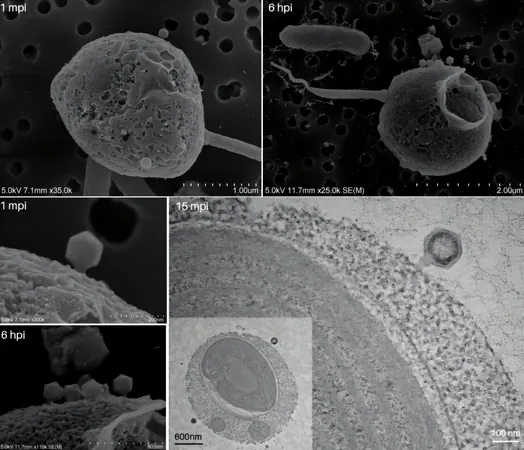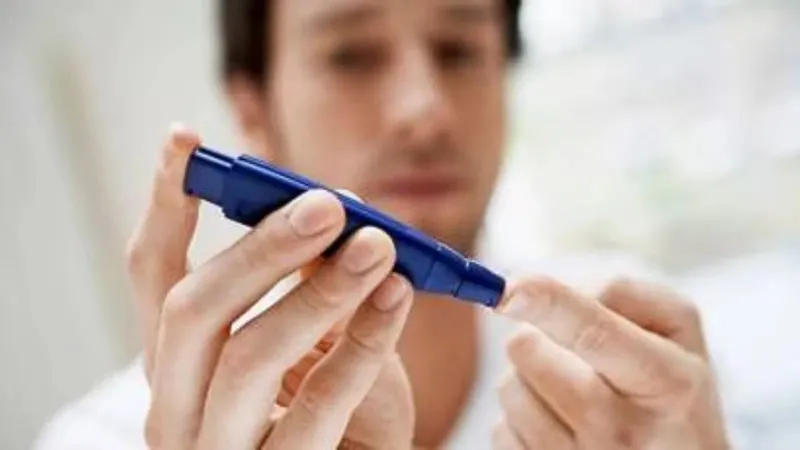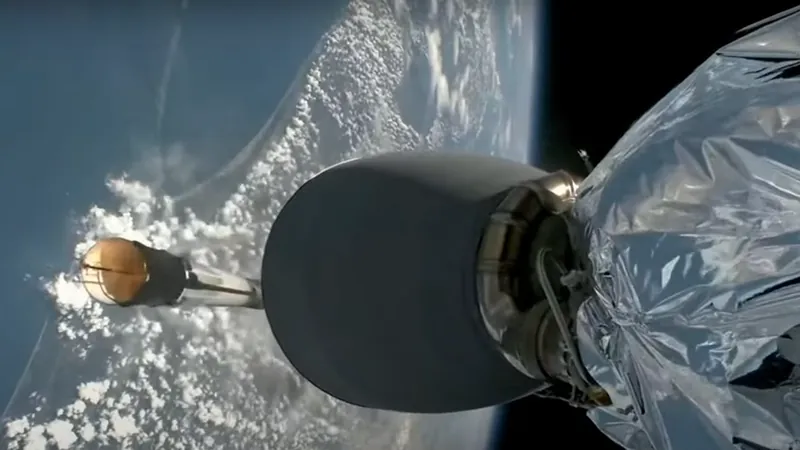
Unlocking a Greener Future: Anesthetic Gases Could Combat Global Warming, Study Reveals!
2025-07-10
Author: John Tan
Game-Changing Research Unveils New Strategies Against Climate Change
A groundbreaking study from the University of Nottingham is turning heads in both the veterinary and environmental communities. Researchers have discovered that the anesthetic gases exhaled by our beloved pets during surgery significantly contribute to global warming. But what if we could capture these gases and turn the tide?
First-of-Its-Kind Study Highlights Efficiency of Gas Capture
Published in the prestigious *British Journal of Anaesthesia*, this innovative research is the first of its kind, focusing on the volatile anesthetics used in dogs and cats. With the help of teams from Mars Linnaeus and the Waltham Pet Care Science Institute, the study tested a cutting-edge gas capture device that showed a remarkable 65% efficiency in trapping isoflurane, a common anesthetic.
Impact on Carbon Emissions: An Eye-Opening Discovery
In concrete terms, this means preventing an average release of 3.75 kgCO2e for every 20 minutes of anesthesia, which is like driving 14 miles in a typical UK car! This revelation not only highlights the potential for reducing the veterinary field's carbon footprint but also underscores the importance of addressing greenhouse gas emissions across all sectors of healthcare.
The Shift Toward Sustainability: A Circular Economy in Veterinary Care
The researchers envision a future where capturing, reprocessing, and reusing anesthetic drugs becomes the norm, transforming today's wasteful linear economy into a sustainable circular economy. This approach is essential as both human and animal healthcare continue to grapple with their environmental impact.
Veterinary Medicine's Role in Combating Climate Change
Veterinary procedures account for about 21% of carbon emissions in canine orthopedic surgeries due to the use of volatile anesthetics. Professor Kate White, a leading figure in the study, emphasizes the urgency of reducing these emissions. "It's crucial for us to capture waste gases to mitigate environmental damage in both humans and animals," she asserts.
Educational Outreach: Training the Next Generation
The initiative doesn't stop with the research. Professor White's team is actively teaching veterinary students at the University of Nottingham about the principles of gas capture technology, which also encompasses other methods like reducing single-use items and utilizing low-flow anesthesia.
A Bright Path Forward: Transitioning to a Low-Carbon Future
This study exemplifies how innovative technologies can significantly facilitate the transition to a low-carbon world, paving the way for sustainable practices in veterinary medicine and beyond. The potential for positive environmental impact is enormous, and with continued research and implementation, we can make strides toward a healthier planet for generations to come.



 Brasil (PT)
Brasil (PT)
 Canada (EN)
Canada (EN)
 Chile (ES)
Chile (ES)
 Česko (CS)
Česko (CS)
 대한민국 (KO)
대한민국 (KO)
 España (ES)
España (ES)
 France (FR)
France (FR)
 Hong Kong (EN)
Hong Kong (EN)
 Italia (IT)
Italia (IT)
 日本 (JA)
日本 (JA)
 Magyarország (HU)
Magyarország (HU)
 Norge (NO)
Norge (NO)
 Polska (PL)
Polska (PL)
 Schweiz (DE)
Schweiz (DE)
 Singapore (EN)
Singapore (EN)
 Sverige (SV)
Sverige (SV)
 Suomi (FI)
Suomi (FI)
 Türkiye (TR)
Türkiye (TR)
 الإمارات العربية المتحدة (AR)
الإمارات العربية المتحدة (AR)